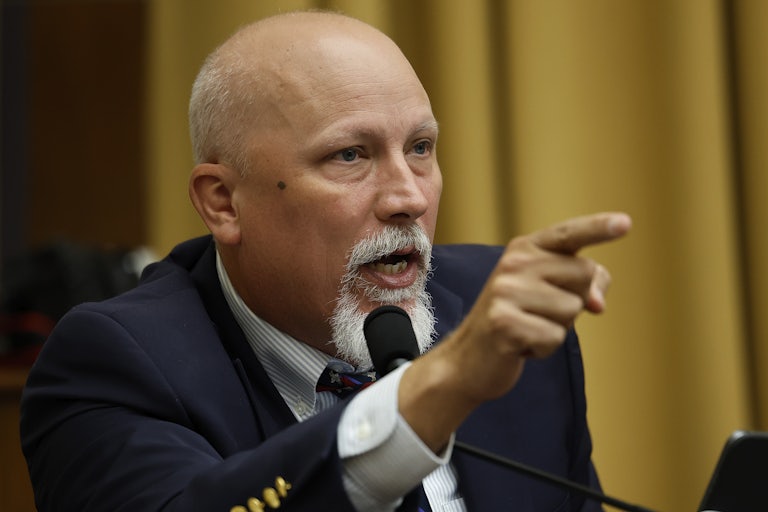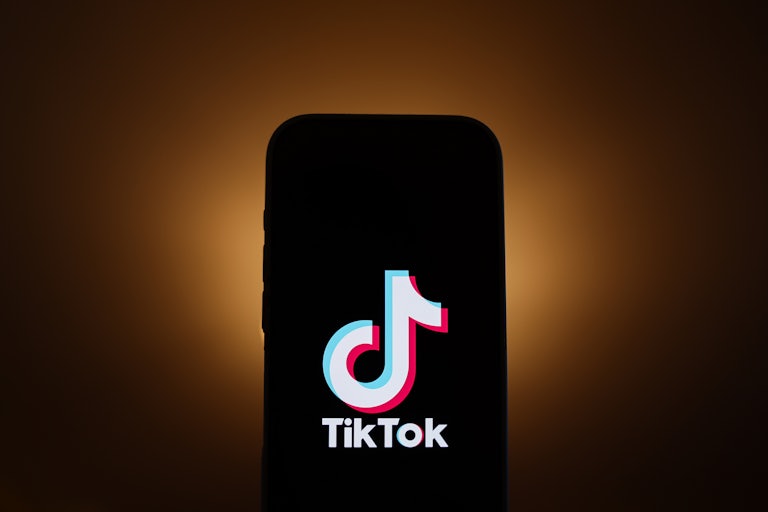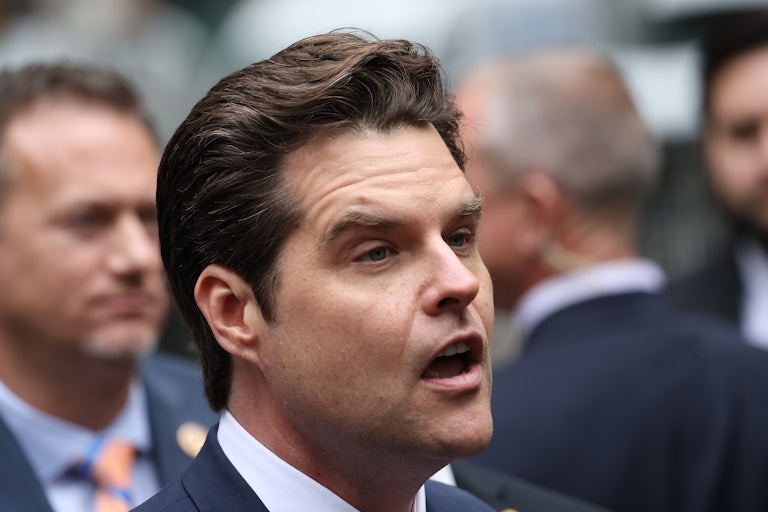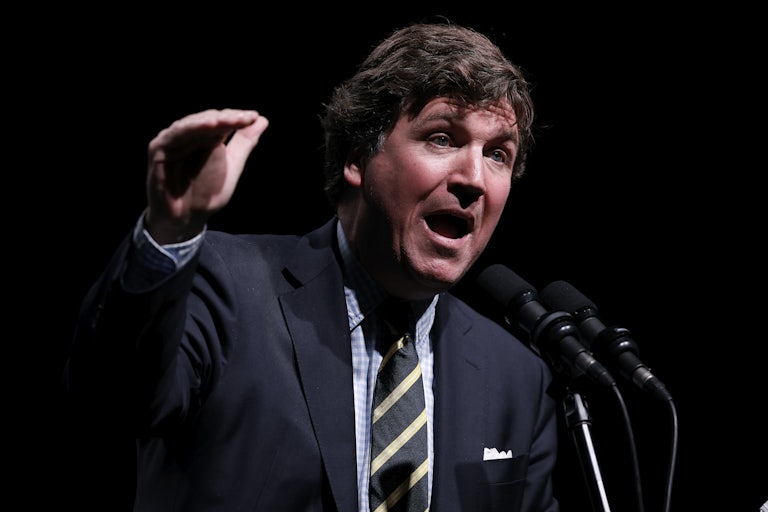Republican Rep. Kicks Off New Speaker Drama Over Spending Bill
Is Mike Johnson about to lose his job?
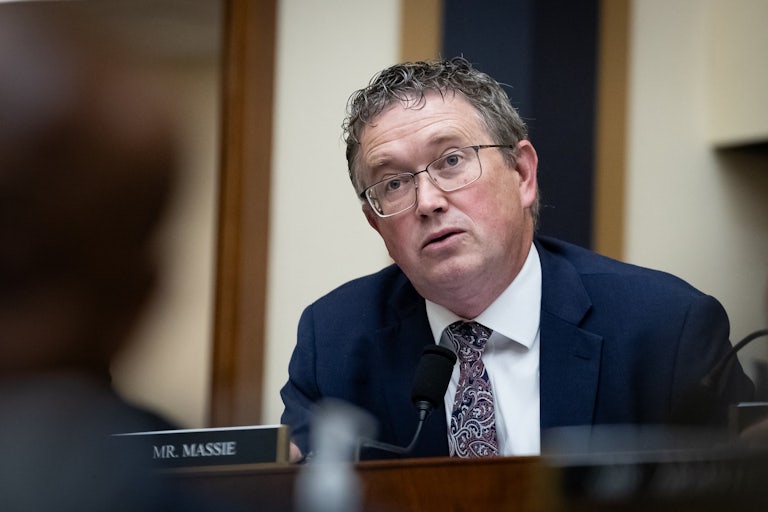
It looks like House Speaker Mike Johnson might be at risk of losing his job.
Republican Representative Thomas Massie said Wednesday that he would not vote for Johnson in the upcoming House speaker election in January, according to Punchbowl News’s Melanie Zanona.
Johnson came under fire Tuesday after introducing a 1,547-page continuing resolution to keep the government open until March. The behemoth bill, which includes $100 billion for disaster relief and opens the door to a pay bump for members of Congress, invited a firestorm from the small-government people, including technocrat billionaire Elon Musk and a slate of sycophantic Republicans.
That latter group includes Massie. The Kentucky Republican has seemingly become preoccupied by the potential goings-on of the Department of Government Efficiency, which plans to slash government spending in the trillions (while leaving the military budget completely untouched).
“DOGE is like the U.S. Constitution. It’ll be great … if you can get my fellow lawmakers to follow it,” Massie wrote in a post on X last week. When DOGE co-czar Vivek Ramaswamy said he’d “welcome” Massie’s help, the representative replied, “Count me in!”
Depending on how Johnson proceeds, and how willing Republican lawmakers are to jump off the bridge that is a government shutdown, the House speaker could find that he has trouble shoring up support to keep his gavel in the new year.
If the Republicans fail to select a House speaker in a timely manner, that could mean trouble for anyone actually interested in certifying the results of the presidential election on January 6, which the chamber is legally required to do—resulting in a constitutional crisis.
Johnson’s leadership team began discussing a second plan Wednesday, a “clean” bill that would cut many of the provisions of the massive stopgap measure, including funding for disaster relief, according to Politico.
